Audi A6 e-tron Sportback vs Tesla Model Y - Differences and prices compared
Compare performance (551 HP vs 627 HP), boot space and price (53800 £ vs 34300 £ ) at a glance. Find out which car is the better choice for you – Audi A6 e-tron Sportback or Tesla Model Y?
Costs and Efficiency:
Price and efficiency are often the first things buyers look at. Here it becomes clear which model has the long-term edge – whether at the pump, the plug, or in purchase price.
Tesla Model Y has a clearly advantage in terms of price – it starts at 34300 £ , while the Audi A6 e-tron Sportback costs 53800 £ . That’s a price difference of around 19551 £.
In terms of energy consumption, the advantage goes to the Tesla Model Y: with 13.10 kWh per 100 km, it’s slight more efficient than the Audi A6 e-tron Sportback with 13.70 kWh. That’s a difference of about 0.60 kWh.
As for electric range, the Audi A6 e-tron Sportback performs somewhat better – achieving up to 754 km, about 132 km more than the Tesla Model Y.
Engine and Performance:
Under the bonnet, it becomes clear which model is tuned for sportiness and which one takes the lead when you hit the accelerator.
When it comes to engine power, the Tesla Model Y has a slightly edge – offering 627 HP compared to 551 HP. That’s roughly 76 HP more horsepower.
In acceleration from 0 to 100 km/h, the Tesla Model Y is slightly quicker – completing the sprint in 3.50 s, while the Audi A6 e-tron Sportback takes 3.90 s. That’s about 0.40 s faster.
In terms of top speed, the Tesla Model Y performs minimal better – reaching 250 km/h, while the Audi A6 e-tron Sportback tops out at 240 km/h. The difference is around 10 km/h.
There’s also a difference in torque: Audi A6 e-tron Sportback pulls significantly stronger with 855 Nm compared to 493 Nm. That’s about 362 Nm difference.
Space and Everyday Use:
Whether family car or daily driver – which one offers more room, flexibility and comfort?
Both vehicles offer seating for 5 people.
In curb weight, Tesla Model Y is somewhat lighter – 1976 kg compared to 2175 kg. The difference is around 199 kg.
In terms of boot space, the Tesla Model Y offers noticeable more room – 822 L compared to 502 L. That’s a difference of about 320 L.
In maximum load capacity, the Tesla Model Y performs distinct better – up to 2138 L, which is about 808 L more than the Audi A6 e-tron Sportback.
When it comes to payload, Audi A6 e-tron Sportback slight takes the win – 500 kg compared to 472 kg. That’s a difference of about 28 kg.
Who wins the race?
The Tesla Model Y proves to be is largely superior and therefore becomes our DriveDuel Champion!
Tesla Model Y is the better all-rounder in this comparison.
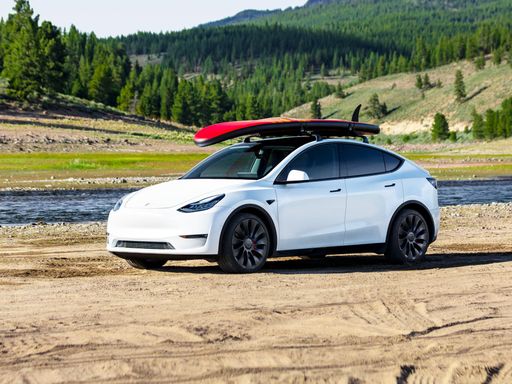
Tesla Model Y
Costs and Consumption
View detailed analysis
Engine and Performance
View detailed analysis
Dimensions and Body
View detailed analysis
Audi A6 e-tron Sportback
The Audi A6 e-tron Sportback wraps futuristic electric technology in elegant, coupe-like proportions, so you arrive looking sharp without shouting for attention. Inside, refined materials and a calm, driver-focused layout make it a convincing choice for buyers who want quiet, effortless performance with a dash of everyday practicality — the kind of car that raises eyebrows without saying a word.
details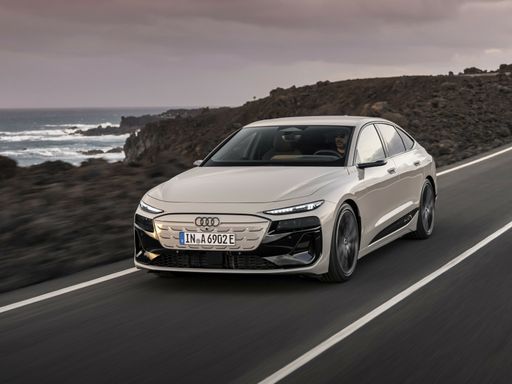
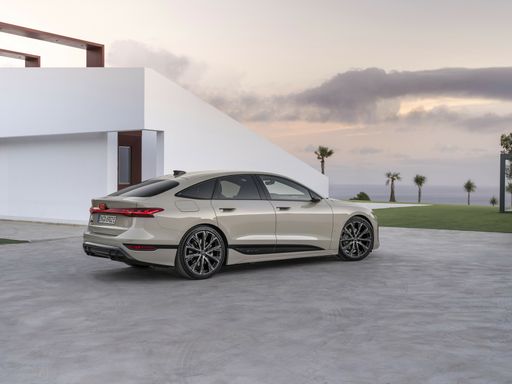
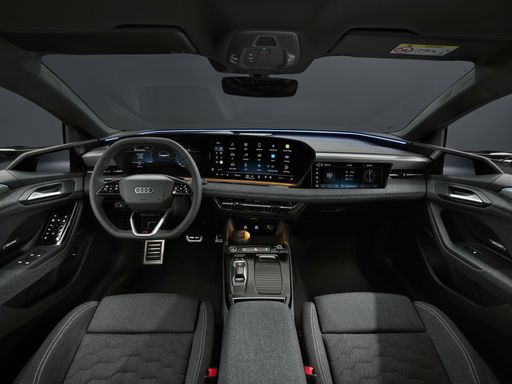
Tesla Model Y
The Tesla Model Y blends SUV practicality with sports-car poke, wrapping a roomy, minimalist cabin and handy hatch into a slick, aerodynamic package that feels more Silicon Valley gadget than garage ornament. It’s an ideal pick for buyers who want effortless electric driving, regular software improvements and access to Tesla’s convenient charging network, though style-conscious shoppers should know it’s more about tech and efficiency than classic luxury.
details
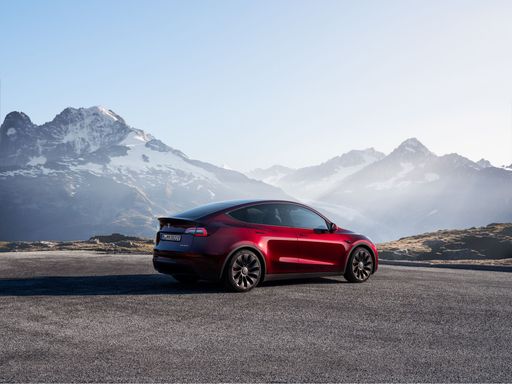
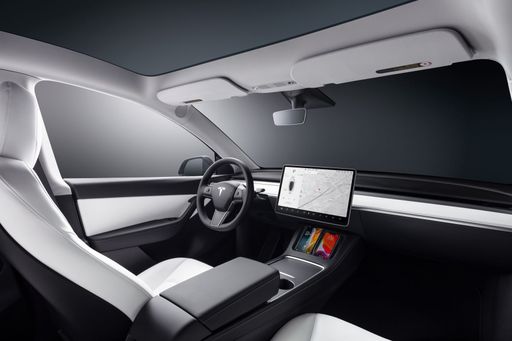
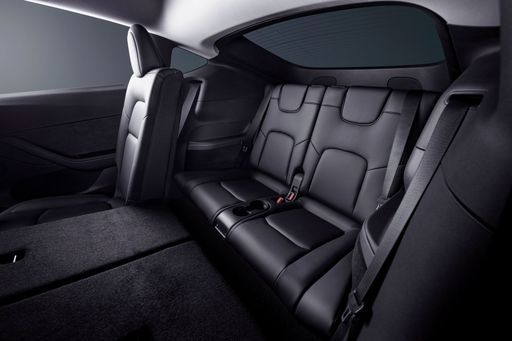
Costs and Consumption |
|
|---|---|
|
Price
53800 - 98700 £
|
Price
34300 - 53100 £
|
|
Consumption L/100km
-
|
Consumption L/100km
-
|
|
Consumption kWh/100km
13.7 - 16.3 kWh
|
Consumption kWh/100km
13.1 - 16.2 kWh
|
|
Electric Range
572 - 754 km
|
Electric Range
534 - 622 km
|
|
Battery Capacity
75.8 - 94.9 kWh
|
Battery Capacity
64.5 - 85 kWh
|
|
co2
0 g/km
|
co2
0 g/km
|
|
Fuel tank capacity
-
|
Fuel tank capacity
-
|
Dimensions and Body |
|
|---|---|
|
Body Type
Hatchback
|
Body Type
SUV
|
|
Seats
5
|
Seats
5
|
|
Doors
5
|
Doors
5
|
|
Curb weight
2175 - 2400 kg
|
Curb weight
1976 - 2108 kg
|
|
Trunk capacity
502 L
|
Trunk capacity
822 L
|
|
Length
4928 mm
|
Length
4790 - 4797 mm
|
|
Width
1923 mm
|
Width
1921 mm
|
|
Height
1465 - 1487 mm
|
Height
1611 - 1624 mm
|
|
Max trunk capacity
1330 L
|
Max trunk capacity
2022 - 2138 L
|
|
Payload
470 - 500 kg
|
Payload
440 - 472 kg
|
Engine and Performance |
|
|---|---|
|
Engine Type
Electric
|
Engine Type
Electric
|
|
Transmission
Automatic
|
Transmission
Automatic
|
|
Transmission Detail
Reduction Gearbox
|
Transmission Detail
Reduction Gearbox
|
|
Drive Type
Rear-Wheel Drive, All-Wheel Drive
|
Drive Type
All-Wheel Drive, Rear-Wheel Drive
|
|
Power HP
326 - 551 HP
|
Power HP
299 - 627 HP
|
|
Acceleration 0-100km/h
3.9 - 6 s
|
Acceleration 0-100km/h
3.5 - 7.2 s
|
|
Max Speed
210 - 240 km/h
|
Max Speed
201 - 250 km/h
|
|
Torque
435 - 855 Nm
|
Torque
420 - 493 Nm
|
|
Number of Cylinders
-
|
Number of Cylinders
-
|
|
Power kW
240 - 405 kW
|
Power kW
220 - 461 kW
|
|
Engine capacity
-
|
Engine capacity
-
|
General |
|
|---|---|
|
Model Year
2024
|
Model Year
2025
|
|
CO2 Efficiency Class
A
|
CO2 Efficiency Class
A
|
|
Brand
Audi
|
Brand
Tesla
|
What drivetrain options does the Audi A6 e-tron Sportback have?
The Audi A6 e-tron Sportback is available as Rear-Wheel Drive or All-Wheel Drive.




